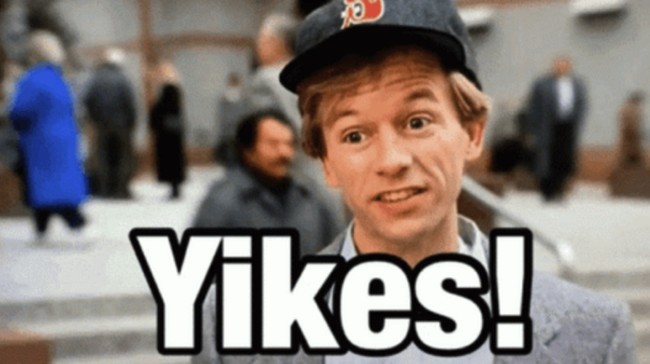ARTICLE AD BOX
BRADFORD, England — “You should be ashamed of yourselves,” the man yelled angrily at a small group of volunteers out campaigning for Naz Shah.
Shah has been the Labour MP for Bradford West, a midsized industrial city in northern England, since 2015.
She is a well-known and popular figure — at the last election she won an astonishing 76.2 percent of the local vote. With Labour expected to score landslide successes in Thursday’s U.K. general election, she ought to be coasting to victory.
Instead she faces the battle of her life.
The problem, Shah conceded, is that many of her Muslim supporters feel “betrayed” by a party which their communities have traditionally voted for, but which they believe is simply “no longer their home.”
“We’ve got a long way to go for that trust to be rebuilt,” she said.
In communities like these, the war in Gaza overshadows everything. Voters on the left and in Muslim communities are furious about Labour’s delay in demanding a cease-fire from Israel over its response to the Oct. 7 terror attacks and are determined to make their voices heard.
Though Labour remains in opposition and so has no say over U.K. foreign policy — until Thursday’s election, at least — many supporters expected a far less nuanced stance from party leaders over what they frequently describe as Israeli genocide. (Israel insists its response has been proportionate, given the nature of the Oct. 7 attacks.)
And Bradford West is one of the majority-Muslim constituencies in urban England where the anger and pain is most passionately felt. As a result Shah, who as one of the U.K. parliament’s most prominent Muslim MPs has been a longtime advocate of Palestinian rights, now finds herself begging voters not to withdraw their support.
Like colleagues in other fiercely pro-Palestinian constituencies, Shah has minimized Labour Party branding on her election material. Her central message — that she is the best choice to keep the “Palestinian issue in the forefront” of her party’s mind — is being only patchily received.
During a fractious day on the campaign trail, POLITICO witnessed protesters directly accusing Shah of supporting the “killing of the Palestinians” by remaining a Labour candidate and backing its leader, Keir Starmer.
West Yorkshire Police are investigating a “racially aggravated public order offense” after one social media user filmed himself following Shah while yelling that she’s a “dirty, dirty Zionist,” a “genocide supporter,” and repeating an antisemitic conspiracy theory.
 Voters on the left and in Muslim communities are furious about Labour’s delay in demanding a cease-fire from Israel. | Oli Scarff/AFP via Getty Images
Voters on the left and in Muslim communities are furious about Labour’s delay in demanding a cease-fire from Israel. | Oli Scarff/AFP via Getty ImagesUltimately, the multiple independent candidates running against Shah on pro-Gaza tickets will likely split the opposing vote on Thursday — meaning she is expected to hold her seat.
But her majority could well be shredded in a result opponents hope will send a strong message to the Labour leadership.
Still chief among their grievances is Starmer’s off-the-cuff suggestion in a notorious LBC radio interview in the weeks after Hamas’ Oct. 7 attack that Israel had the right to cut off power and water to Gaza.
That clip has been shared endlessly on social media and in WhatsApp groups as supposed proof of Starmer’s callous approach, despite frantic attempts by the leader to walk back.
Attack from the left
It’s not just in Britain’s Muslim communities where the anger is viscerally felt.
In Bristol Central, a bohemian and famously anti-establishment constituency in England’s most prominent southwest city, there’s every chance one of Starmer’s chief lieutenants could be unseated by a different opponent — the leftist Green Party.
 In Bristol Central, there’s every chance one of Starmer’s chief lieutenants could be unseated by the leftist Green Party. | Finnbarr Webster/Getty Images
In Bristol Central, there’s every chance one of Starmer’s chief lieutenants could be unseated by the leftist Green Party. | Finnbarr Webster/Getty ImagesThangam Debbonaire, Labour’s shadow culture secretary — putting her in line for a Cabinet job if Labour wins Thursday’s election — currently sits on an enormous majority of 28,219 votes.
But like Shah, her biggest successes were achieved when Labour was led by Jeremy Corbyn, running on a hard-left platform. The tack to the center under Starmer since 2020 has been relentless and Palestinian flags no longer fill the conference hall at Labour’s annual get-together.
Bon Dowler, a 22-year-old bartender in Bristol, is among those who feel “betrayed” by the party, pointing to Labour’s refusal to vote for a cease-fire back in November. “That was the first time I thought I needed an alternative,” she said, saying she’d now vote for the Greens.
In February Labour did eventually put forward an amendment to a House of Commons motion supporting a cease-fire, but the damage had already been done in areas like these.
For Debbonaire, the argument about how Labour should be voting while in opposition is beside the point.
“As a party of government, what Keir’s been doing is preparing to get that peace process up and running,” she said. “A party of protest can protest about motions which [Israeli Prime Minister Benjamin] Netanyahu and Hamas have taken precisely no notice.”
Damage limitation
Under pressure from Labour MPs fearful about their majorities, Starmer has taken several steps toward a less-fulsome support of Israel.
He has been pushing for the Conservative-led U.K. government to publish its legal advice on whether Israel’s war should be deemed illegal, vowing to use the guidance to decide whether to support ending Britain’s limited export of arms to Tel Aviv.
Battling to save her seat, Debbonaire was happy to state what other senior Labour figures have held back from saying in public. “We suspect [the war] is probably illegal. It’s a small amount of arms, but if it’s illegal we will of course stop it,” she said.
Starmer’s election manifesto also commits Labour to recognizing a Palestinian state as part of the peace process, though no timeline has been given. Shah said she wants the party to “go further still” and pledged to push for immediate recognition if reelected.
But one Labour official, granted anonymity to allow them to speak openly, suggested recognition would only be “effective” as part of a “wider process.”
“Previous unilateral declarations by individual countries have not yet yielded the meaningful diplomatic progress that we all want to see,” the official said, noting Ireland, Norway and Spain sparked Israeli anger by recognizing Palestinian statehood.
 Starmer’s election manifesto commits Labour to recognizing a Palestinian state as part of the peace process, though no timeline has been given. | Henry Nicholls/AFP via Getty Images
Starmer’s election manifesto commits Labour to recognizing a Palestinian state as part of the peace process, though no timeline has been given. | Henry Nicholls/AFP via Getty ImagesInstead, Britain under Starmer would likely look toward allies such as France, Australia and Canada for possible coordination, when it believes the time is right.
Seats to watch
Labour officials are painfully aware they face battles over Gaza in multiple seats around the U.K.
In Rochdale, a town in northwest England with a large Muslim community, Labour had to withdraw support for its own parliamentary candidate in a February by-election when he was caught on tape suggesting Israel had “allowed” Hamas’ attack.
As a result George Galloway, a left-wing firebrand and pro-Palestine activist with a history of inflicting upsets on Labour, soared to victory in a landslide. Labour hopes to recover the seat this time round.
Shabana Mahmood, one of Starmer’s most trusted allies who is lined up to become justice secretary, faces real pressure in her constituency of Birmingham Ladywood, in Britain’s second-largest city. Allies are confident she’ll win, but on a much-reduced majority.
Attention will focus too on Islington North, in London, where hundreds of left-wing activists are trying to help Jeremy Corbyn retain his seat of more than 40 years. The former leader is running against Labour as an independent, having been expelled from the parliamentary party over his response to accusations of antisemitism. Polls are far from clear about which way the seat is likely to swing.
 Attention will focus on Islington North, in London, where hundreds of left-wing activists are trying to help Jeremy Corbyn retain his seat of more than 40 years. | Dan Kitwood/Getty Images
Attention will focus on Islington North, in London, where hundreds of left-wing activists are trying to help Jeremy Corbyn retain his seat of more than 40 years. | Dan Kitwood/Getty ImagesPrivately, senior Labour figures accept they have a long way to go to rebuild the bridges burned with once loyal communities, saying there is “no denying these seats are much closer than they have ever been before.”
“It is obvious that there’s some rebuilding to be done between Labour and Muslim voters,” a second official said. “The way that Labour governs, so that it has an impact on seats that are threatened, is going to be really important.”
There seems no chance Gaza could actually cost Starmer the election, given the size of his poll lead, nor even cost him many MPs. But a clear message will be sent regardless.
In the last U.K. election in 2019 it was voters in Labour’s former heartlands in the North and the Midlands who offered a sharp reminder they should not be taken for granted. In 2024 it’s a very different set of Labour voters demanding their voices be heard.
Additional reporting by Noah Keate.
.png)
 8 months ago
6
8 months ago
6








 English (US)
English (US)